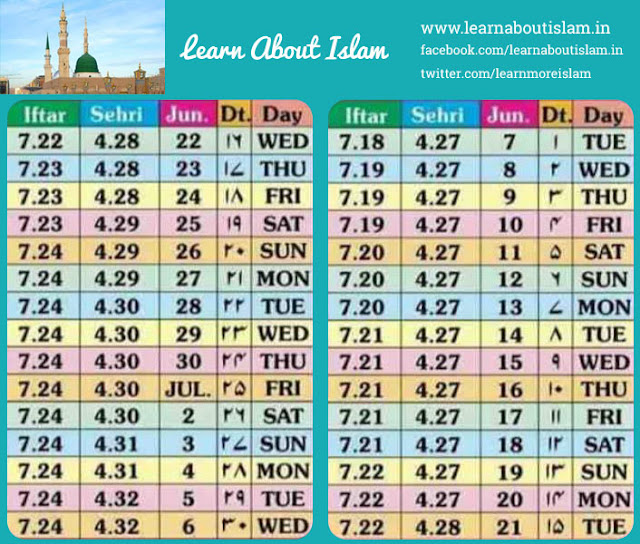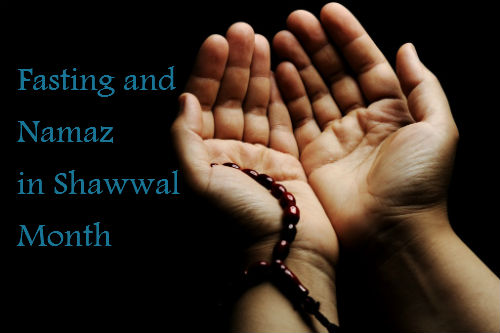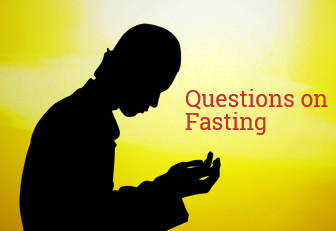Read the below Daily Dua in Ramadan from Day1 to Day30.
The Prophet Mohhamed Salalahu Alaihiwasal said: Duas of three persons are never refused: a fasting man
when breaking the fast, a just ruler, and an oppressed person, Allah's
blessings be upon him. (Abu Huraira in Tirmidhi).
#Ramadan month is composed of 30 days and is divided further into 3 Ashras. The word “Ashra’” is an Arabic word for 10 days. When some one says Pehla Ashra, He means that he is talking about the first 10 days of Ramadan. In the same way Doosra Ashra and Teesra Ashra.
Below are the Daily Dua to be Read for 30 days
Ramadan Dua: DAY 1
ALLAH, on this day make my fasts the fasts of those who fast (sincerely), and my standing up in prayer of those who stand up in prayer (obediently), awaken me in it from the sleep of the heedless, and forgive me my sins , O God of the worlds, and forgive me, O one who forgives the sinners.
Ramadan Dua: DAY 2
ALLAH, on this day, take me closer towards Your pleasure, keep me away from Your anger and punishment, grant me the opportunity to recite Your verses (of the Qur'an), by Your mercy, O the most Merciful.
Ramadan Dua: DAY 3
ALLAH, on this day, grant me wisdom and awareness, keep me away from foolishness and pretension, grant me a share in every blessing You send down, by You generosity, O the most Generous.
Ramadan Dua: DAY 4
ALLAH, on this day, strengthen me in carrying out Your commands, let me taste the sweetness of Your remembrance, grant me, through Your graciousness, that I give thanks to You. Protect me, with Your protection and cover, O the most discerning of those who see.
Ramadan Dua: DAY 5
ALLAH, on this day, place me among those who seek forgiveness. Place me among Your righteous and obedient servants, and place me among Your close friends, by Your kindness, O the most Merciful.
Ramadan Dua: DAY 6
ALLAH, on this day, do not let me abase myself by incurring Your disobedience, and do not strike me with the whip of Your punishment, keep me away from the causes of Your anger, by and Your power, O the ultimate wish of those who desire.
Ramadan Dua: DAY 7
ALLAH, on this day, help me with its fasts and prayers, and keep me away from mistakes and sins of the day, grant me that I remember You continuously through the day, by Your assistance, O the Guide of those who stray.
Ramadan Dua: DAY 8
ALLAH, on this day, let me have mercy on the orphans, and feed [the hungry], and spread peace, and keep company with the noble-minded, O the shelter of the hopeful.
Ramadan Dua: DAY 9
ALLAH, on this day, grant me a share from Your mercy which is wide, guide me towards Your shining proofs, lead me to Your all encompassing pleasure, by Your love, O the hope of the desirous.
Ramadan Dua: DAY 10
ALLAH, on this day, make me, among those who rely on You, from those who You consider successful, and place me among those who are near to you, by Your favor, O goal of the seekers.
Ramadan Dua: DAY 11
ALLAH, on this day, make me love goodness, and dislike corruption and disobedience, bar me from anger and the fire [of Hell], by Your help, O the helper of those who seek help
Ramadan Dua: DAY 12
ALLAH, on this day, beautify me with covering and chastity, cover me with the clothes of contentment and chastity, let me adhere to justice and fairness, and keep me safe from all that I fear, by Your protection, O the protector of the frightened.
Ramadan Dua: DAY 13
ALLAH, on this day, purify me from un-cleanliness and dirt, make me patient over events that are decreed, grant me the ability to be pious, and keep company with the good, by Your help, O the beloved of the destitute.
Ramadan Dua: DAY 14
ALLAH, on this day, do not condemn me for slips, make me decrease mistakes and errors, do not make me a target for afflictions and troubles, by Your honor, O the honor of the Muslims.
Ramadan Dua: DAY 16
ALLAH, on this day, grant me compatibility with the good, keep me away from patching up with the evil, lead me in it, by Your mercy, to the permanent abode, by Your God ship, O the God of the worlds.
Ramadan Dua: DAY 17
ALLAH, on this day, guide me towards righteous actions, fulfill my needs and hopes, O One who does not need explanations nor questions, O One who knows what is in the chests of the (people of the) world. Bless Muhammad and his family, the Pure.
Ramadan Dua: DAY 18
ALLAH, on this day, make me love goodness, and dislike corruption and disobedience, bar me from anger and the fire [of Hell], by Your help, O the helper of those who seek help.
Ramadan Dua: DAY 19
ALLAH, on this day, multiply for me its blessings, and ease my path towards its bounties, do not deprive me of the acceptance of its good deeds, O the Guide towards the clear truth.
Ramadan Dua: DAY 20
ALLAH, on this day, open for me the doors of the heavens, and lock the doors of Hell from me, help me to recite the Qur'an, O the One who sends down tranquility into the hearts of believers.
Ramadan Dua: DAY 21
ALLAH, on this day, show me the way to win Your pleasure, do not let Shaytan have a means over me, make Paradise an abode and a resting place for me, O the One who fulfills the requests of the needy.
Ramadan Dua: DAY 22
ALLAH, on this day, open for me the doors of Your Grace, send down on me its blessings, help me towards the causes of Your mercy, and give me a place in the comforts of Paradise, O the one who answers the call of the distressed.
Ramadan Dua: DAY 23
ALLAH, on this day, wash away my sins, purify me from all flaws, examine my heart with (for) the piety of the hearts, O One who overlooks the shortcomings of the sinners.
Ramadan Dua: DAY 24
ALLAH, on this day, I ask You for what pleases You, and I seek refuge in You from what displeases You, I ask You to grant me the opportunity to obey You and not disobey You, O One who is generous with those who ask
Ramadan Dua: DAY 25
ALLAH, on this day, make me among those who love Your friends, and hate Your enemies, following the way of Your last Prophet, O the Guardian of the hearts of the Prophets.
Ramadan Dua: DAY 26
ALLAH, on this day, make my efforts worthy of appreciation, and my sins forgiven, my deeds accepted, my flaws concealed, O the best of those who hear.
Ramadan Dua: DAY 27
ALLAH, on this day, bestow on me the blessings of Laylatul Qadr, change my affairs from (being) difficult to (being) easy, accept my apologies, and decrease for me [my] sins and burdens, O the Compassionate with His righteous servants.
Ramadan Dua: DAY 28
ALLAH, on this day, grant me a share in its nawafil (recommended prayers), honor me by attending to my problems, make closer the means to approach You, from all the means, O One who is not preoccupied by the requests of the beseechers.
Ramadan Dua: DAY 29
O ALLAH, on this day, cover me with Your mercy, grant me in it success and protection, purify my heart from the darkness of false accusations, O the Merciful to His believing servants.
Ramadan Dua: DAY 30
O ALLAH, on this day, make my fasts worthy of appreciation and acceptance, according to what pleases You, and pleases the Messenger, the branches being strengthened by the roots, for the sake of our leader, Muhammad, and his purified family. Praise be to ALLAH, the Lord of the worlds.





![Salatul Tasbih Prayers | Namaz [Authentic, Sunnah Way] with Video Salatul Tasbih Prayers | Namaz [Authentic, Sunnah Way] with Video](https://blogger.googleusercontent.com/img/b/R29vZ2xl/AVvXsEgNUkkv1jkZwFzcxRmfJcvayd6-4H9j_JgDImInycsBQc7vZe_qMa9fjkTAA8ueiwxNo0LUUIG_sj7uw0LlzdOTJUcV8r_bMK-_6GjWT0SHjhgLJluVYwmLgN9IfUndGcC1wUQiGCH5Psg/s400/IMG-20160522-WA0016.jpg)















































